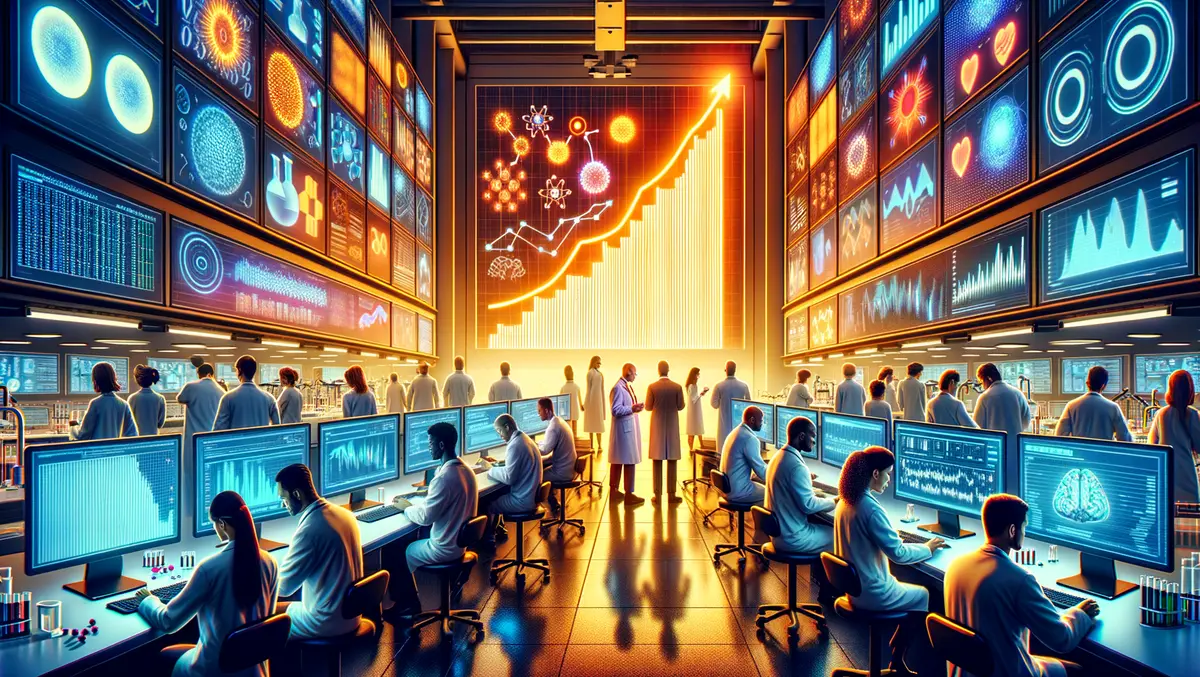
AI set to revolutionise the pharma & biotech industries
A recently launched report on Artificial Intelligence (AI) in the Pharma and Biotech Market has projected explosive growth in coming years. The study, conducted by Transparency Market Research, has anticipated the market reaching a stunning valuation of US$ 13.1 billion by 2034, the spectacular growth rising from a 2023 forecast of US$ 1.8 billion. A robust compound annual growth rate (CAGR) of 18.8% will drive this expansion from 2024 onwards.
AI's integration into the pharmaceutical and biotech terrain is redefining standards by providing notable new ways to harness, analyse and apply data. Both the speed and efficiency of the drug discovery procedure have been significantly bolstered by the use of AI, particularly as machine learning algorithms have enabled researchers to mine large amounts of data in unprecedented ways. Predictive modelling and virtual screenings, facilitated by AI, have rendered the identification of potential drug candidates quicker, more efficient and cost-effective, says the report.
AI proves its weight in the healthcare industry with the advancement of precision medicine, one of its most successful applications. By integrating intricate patient data, including genomics, proteomics, and clinical records, AI algorithms have the power to construct unique treatment methodologies, tailored per individual patient's requirements. This approach enhances treatment outcomes and simultaneously diminishes potential side effects via drug selection and dosage optimisation.
More traditional procedures - like clinical trials, which are vital for assessing the safety and efficacy of drugs prior to introduction into the market - have been streamlined by the application of AI technologies such as predictive analytics and patient stratification algorithms. The report highlights how these substantially reduce clinical trial recruitment time, identify suitable participants and optimise trial protocols, thus accruing less cost and accelerating the development timeline.
Drug repurposing is another area where AI has been transformative. AI algorithms mining biomedical datasets on a large-scale basis, including electronic health records and scientific literature, can flag existing drugs with potential new therapeutic benefits or propose novel drug combinations for synergistic effects. This method aids in the expedition of the drug development process as well as maximising the therapeutic potential of existing medication for improved patient care.
AI's scope goes beyond drug discovery and development, making marked advancements in diagnostic imaging and disease diagnosis too. Deep learning algorithms trained on various medical imaging data can detect and classify a wide array of diseases, such as cancer, cardiovascular disorders, and neurological conditions, through MRI, CT, and X-ray scans, enabling early disease detection, precise diagnosis, personalised treatment planning, and ultimately improving patient outcomes while reducing healthcare costs.
Despite its evident transformative potential, the widespread implementation of AI in pharma and biotech does present challenges, warns the report. Notably, data privacy and security considerations, regulatory constraints, and validation and interpretation of AI-generated insights are significant obstacles faced by the industry. Lip service is also paid to the substantial investments required for integrating AI into existing workflows, covering new infrastructure and talent, and managing the organisational change.
Looking to the future, AI's prospects in pharma and biotech are promising. Continual advancements in AI algorithms, further infiltration of big data, and rapidly evolving digital health technologies will bolster innovation in drug discovery, personalised medicine and healthcare delivery. Collaborations between industry stakeholders, academia, and regulatory agencies will be key in fully harnessing AI's immense potential to resolve unmet medical needs and globally improve patient care, concludes the report.


